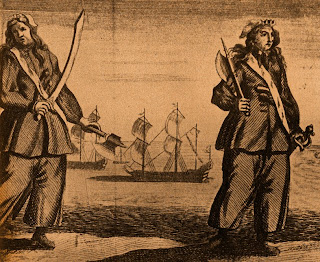
Thierry Henry hiding behind a beard.
I love the notion, indeed the expectation, of any genuine sporting contest. It does not matter what the sport is as long as there is a genuine willingness to play fairly to the best of one’s ability. A naïve aspiration no doubt but I’ll hang in there. The soccer World Cup second-leg qualification play-off match between France and Ireland last Wednesday has left a bitter-sweet taste in many spectators mouths. Not the match per say, as it was the best soccer match I have watched Ireland being involved in for many years, but the nature of its conclusion. Thierry Henry pulling behind Ireland’s last defender, who to be fair should have done better to cover the run, controlled the ball twice with his left hand to prevent it going out of play and then with a flick of his right foot crossed for William Gallas to head home the goal from a short distance. An instant in time but in that instant Henry has achieved an infamy and it is a moment he will always be remembered for.
All sportsmen cheat, whether a little or a lot, to gain an advantage. Some call it bending the rules, gamesmanship, taking advantage of lax officialdom whatever. The pressure on professional sportsmen in particular is enormous (the French team were on a reported €400,000 bonus to qualify for South Africa) and also on referees. I was a rugby referee for 25 years and although serious and usually repetitive ‘cheaters’ were found out many, many players are coached from a young age to creatively ‘explore’ the margins of what it is possible ‘to get away with’. Indeed for many this marginal behaviour is admired. In most professional sports however modern technology has allowed the development of oversight techniques, which are called into use when a ‘critical incident’ would have a bearing on the outcome of a contest or an event. FIFA, the world governing body, will now have to seriously consider television official replays for any incident within the penalty box that leads to or denies a score.
On a tangential note, I also believe we have found a new type of French execution to replace Madame Guillotine: the Monsieur Henry Gillette; being a double-tap drop movement of the executioner’s arm. I also wonder as a result whether the Gillette company (part of Proctor&Gamble) will ease Thierry Henry from its ad campaigns for razors from the company of two acknowledged ‘true’ sportsmen in Tiger Woods and Roger Federer. Almost certainly his sleight of hand will result in some sort of ‘guillotine’ motion at the next company AGM!

The Tarot card for the Thief
The Guillotine of French Revolution fame, named after the Professor of Anatomy in Paris who was on the commissioning committee, was a direct descendant of the Halifax Gibbet in use in Halifax, Yorkshire from as early as the 12th Century. Gibbets were primarily structures used for hanging dead bodies (sometimes in cages) for public display. The Halifax Gibbet was much more pro-active than this. Statutes going back to the time of King Philip and Queen Mary state:
“That if a felon be taken within their liberty, with goods stolen out or within the liberty or precincts of the said forest, either Hand-habend, Back-berand, or confess and cloth, or any other commodity of the value of thirteen-pence half penny, that they shall, after three markets, or meeting days, within the town of Halifax, next after such his apprehension, and being condemned, he shall be taken to the Gibbet, and there have his head cut off his body.”
Hand-habend is an archaic way of describing a suspect “having his hand in, or being caught in the very act of stealing” aka Monsieur Thierry Henry.

Russian Constitutional Court
On a more positive note the Russian Constitutional Court, the morning after the match, upheld an indefinite moratorium on the re-introduction of the death penalty which was due to run out next January when Chechnya becomes the final republic to introduce jury trials; the universal availability/absence of jury trials being the legal reason for the moratoriums introduction in the first place in 1999. That just leaves Belarus as the last country in Europe where the death penalty is still available as a sanction.




















